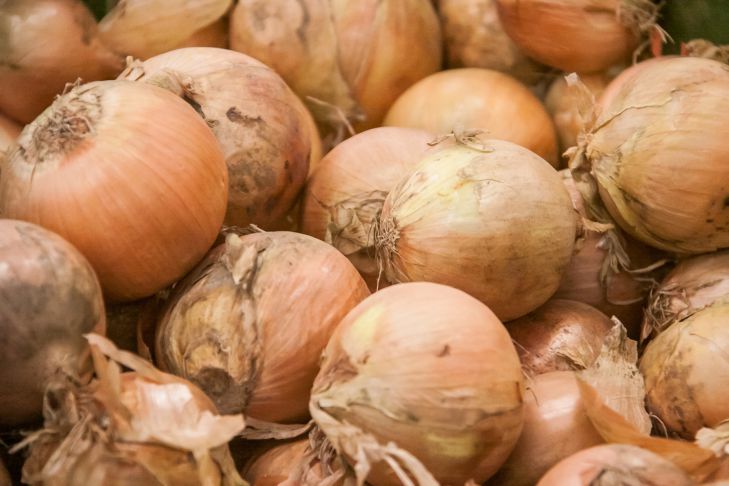Onions are an indispensable product in cooking, but storing them often causes difficulties for housewives.
Properly organized storage conditions allow you to keep the bulbs fresh and juicy throughout the year.
Preparing onions for storage
Successful storage begins with proper preparation of the crop. Bulbs should be dug up in dry weather, when the feather has completely fallen.
Drying is carried out in the open air under a canopy for two weeks.
After the neck has completely dried, it is necessary to cut off the tops, leaving a stump 4-5 centimeters long.

Optimum storage temperature
The ideal temperature range for storing onions is from 0 to +4 degrees Celsius.
At higher temperatures, the bulbs begin to sprout, and at negative temperatures they freeze and lose their qualities.
Relative humidity should be maintained at 60-70 percent.
Selecting a storage location
A basement or cellar is considered the optimal place to store onions.
The room must be well ventilated and protected from direct sunlight.
City dwellers are advised to use the lower sections of the refrigerator or a glazed balcony during the cold season.
Methods of storage in the apartment
Modern living conditions require a special approach to storing vegetables.
The bulbs can be placed in cardboard boxes with holes for ventilation, braided into traditional braids, or placed in mesh bags.
It is important to regularly check the condition of vegetables and remove sprouted or damaged specimens.
Folk methods of storage
Experienced housewives use various methods to extend the shelf life of onions. Sprinkling the bulbs with dry mustard prevents mold and pests.
Treating the top scales with vegetable oil creates a protective film that prevents germination.
Signs of proper storage
Well-preserved onions have dry, rustling scales of a golden or brown color.
The bulb should be firm, with no signs of softening or green shoots.
An unpleasant odor or the appearance of dark spots indicates that storage conditions have not been met.
Common mistakes
Many people make serious mistakes when storing onions.
Storage in damp bags, placement near potatoes or fruits that emit ethylene, and lack of ventilation lead to rapid spoilage of the product.
Insufficient drying before storage also significantly reduces shelf life.
Seasonal storage features
In autumn and winter, onions store much better due to naturally low temperatures.
In spring and summer, special attention is required to storage conditions. Using a refrigerator becomes the optimal solution for maintaining quality








